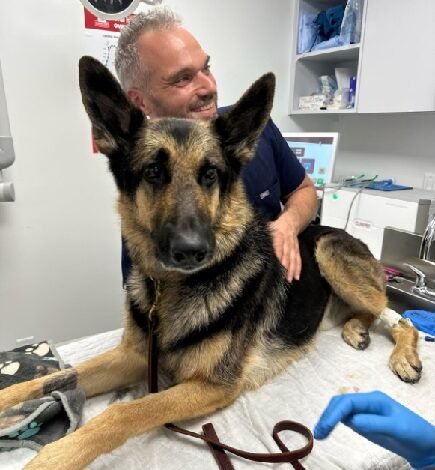Why You Shouldn’t Wait: The Risks of Delaying Emergency Pet Care

As a pet owner, few things are more terrifying than witnessing your beloved animal in distress. Whether it’s a sudden accident, a strange behavior, or an unexpected illness, these moments can quickly escalate into emergencies. However, in those frantic situations, the hesitation to seek emergency vet care can creep in. You might wonder if it’s necessary to rush to the vet or if the problem will resolve on its own. While it’s a natural reaction to question the severity, delaying professional care can pose significant risks to your pet’s health—and in some cases, even their life.
Understanding the dangers of delaying treatment is crucial for every pet parent. From worsening conditions to more complex interventions later, postponing emergency care often results in complications that could have been avoided with prompt action. Here’s why immediate veterinary attention is vital and how to recognize when it’s time to act without delay.
The Importance of Rapid Response
In emergency situations, time is of the essence. Animals, much like humans, rely on early intervention to improve the chances of recovery and reduce the severity of an illness or injury. Veterinary surgeons are trained to act swiftly, but the longer you wait, the harder it may become to manage the situation.
Take, for instance, internal injuries from accidents, which might not show obvious symptoms right away. By the time noticeable signs appear—such as lethargy or labored breathing—the condition could be far more advanced. With access to advanced diagnostic technology like X-rays, ultrasounds, or a state-of-the-art CT scan, veterinarians can quickly assess and treat such injuries before they worsen. Waiting to seek treatment can lead to more invasive procedures, extended recovery periods, and, in some cases, irreversible damage.
Worsening of Symptoms
Certain conditions, if left untreated, can rapidly escalate. Consider a gastrointestinal blockage, one of the most common emergencies veterinarians see. In its early stages, a pet may simply vomit or experience discomfort. However, as time passes, the blockage can lead to severe pain, tissue death, and the need for emergency surgery. What could have been resolved with less invasive treatment may now require a more complex operation, putting your pet at greater risk.
Similarly, respiratory issues or sudden changes in your pet’s behavior could indicate underlying problems that need immediate attention. If your pet seems to be in respiratory distress or shows signs of weakness or confusion, delaying care can compromise their chance of survival. By acting swiftly, you ensure that your pet receives the advanced specialty treatments necessary to manage critical conditions.
The Costs of Delay
While concerns over costs can make pet owners hesitate, waiting often leads to higher expenses in the long run. Early intervention not only improves outcomes but can also reduce the overall financial burden by preventing the need for more extensive treatments. For example, minor issues like a small laceration or a minor infection can escalate into a serious problem requiring pet surgery or hospitalization if left unattended.
Additionally, untreated conditions such as dental issues can lead to systemic infections, making the situation more complex and costly to treat. Seeking animal dental care at the first sign of a problem can prevent future emergencies and ensure your pet’s long-term health.
Recognizing the Signs of an Emergency
It’s not always easy to know when something is truly an emergency. However, there are some key signs that indicate you should seek veterinary care immediately:
- Breathing problems: If your pet is struggling to breathe or showing signs of respiratory distress, it’s crucial to seek help immediately. Labored breathing can indicate anything from an obstruction in the airways to heart problems.
- Bleeding: Whether it’s a cut, a bite, or internal bleeding, excessive bleeding is always an emergency. Time is critical in preventing shock and further complications.
- Sudden behavioral changes: If your pet is suddenly unresponsive, excessively lethargic, or acting out of character, it could be a sign of a serious condition such as poisoning or a neurological issue.
- Vomiting or diarrhea: While these symptoms can sometimes be minor, persistent or severe vomiting and diarrhea can indicate a more serious condition that requires immediate care, such as a blockage or infection.
- Seizures or collapse: Any seizure activity or unexplained collapse is an urgent issue and requires immediate medical attention.
- Exposure to toxins: If you suspect your pet has ingested something harmful, don’t wait for symptoms to appear. Bring them in for treatment right away, as early intervention can prevent the toxin from causing severe damage.
By knowing these signs and acting promptly, you can help protect your pet from further harm.
Finding the Right Emergency Care
It’s essential to have a reliable, full-service veterinary clinic that provides 24/7 emergency care for pets. Facilities like URvet Care offer comprehensive emergency services, ensuring that your pet can receive immediate treatment any time of day or night. With their commitment to medical excellence and integrated pet care services, they not only handle the emergency at hand but also provide continued care to promote your pet’s long-term health. Whether it’s a pet check-up, pet microchipping, or even veterinary acupuncture, they offer the complete spectrum of care for every pet’s needs.
Emergency care facilities are equipped with diagnostic technology to assess and treat emergencies quickly, making them the best option when your pet’s condition demands immediate attention. Moreover, they often have advanced pet treatments available for both routine and complex cases, ensuring your pet gets the care they need without delay.
Acting Now Can Save Your Pet’s Life
In the world of pet emergencies, waiting is not an option. Prompt care can make all the difference between a quick recovery and a life-threatening situation. As a pet owner, it’s your responsibility to act swiftly when something seems wrong. By recognizing the signs and understanding the importance of immediate veterinary care, you can help your pet avoid unnecessary suffering and get back to their healthy, happy self as soon as possible.
Remember, your pet’s health and well-being are worth the investment of time and care—never hesitate to seek emergency help when it’s needed most.










